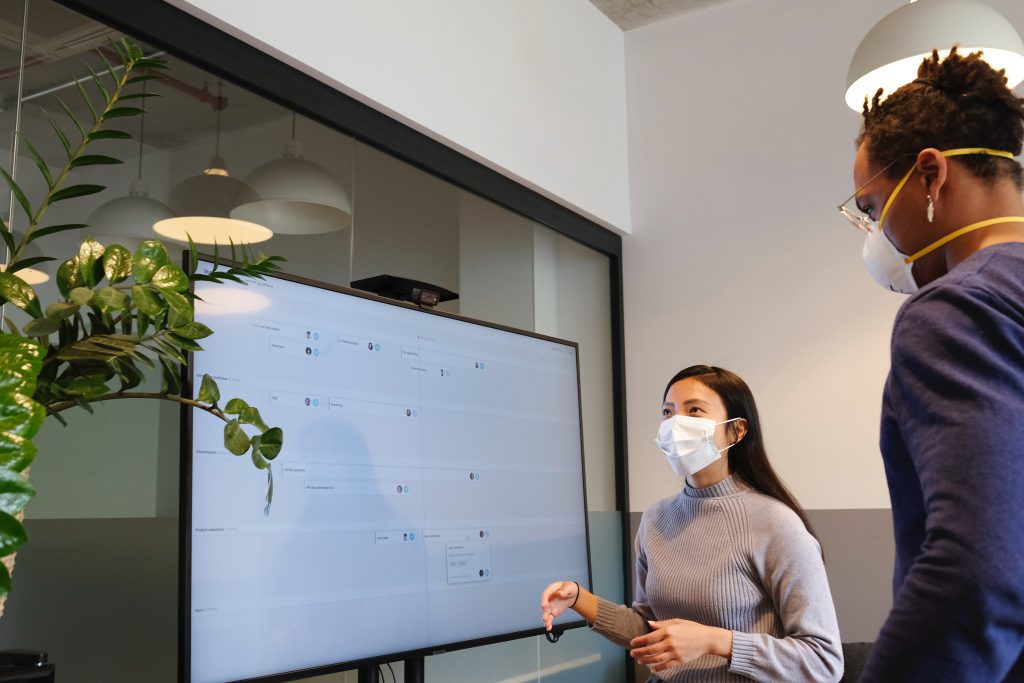When I was in the Marine Corps, my opinion didn’t matter.
I was extremely young, and the expectation was only that I follow commands and let my training do the rest. Given the nature of military action, this is an understandable arrangement, but it doesn’t jive with the sort of productive workforce companies look to build in the civilian sphere. I knew this at the time, and it frustrated me beyond comprehension. My value as a thinker and the ideas I can offer are not limited by my age or even my rank. My survival and the success of the overall mission are intertwined, so what use is it to senior staff to ignore my contributions? Why won’t they take the time to hear them?
It just isn’t done.
Our manuals are covered in lingo and rhetoric reflecting a bygone era of conventional war planning. The world is more complex than that, and the issues we face are certainly more dynamic. Interestingly, many embrace the opportunities of a future in which robotic troops are sent in rather than humans, but many more are keen to brush off the young Marine who believes he’s found a better way of doing something. Why does it work this way?
Reason 1 – This is how it’s always been done
If we believe that we’ve found success and our methods are sound, why would we make changes? What is the saying? “If it ain’t broke, don’t fix it.” Right?
WRONG.
The world is constantly evolving. This means that our workforce should be doing the same thing. Ideas don’t only originate in the upper echelon; they migrate their way up, through, around, and beyond the “chain of command.” Every individual within your squad, platoon, team, department, company, has a role to play. In our military, they are, generally, placed there with no input from the receiving unit. But in our workforce, they are selected, hired, trained, and taught the values of their new organization. The new hire is taught to see the company as an extension of themselves, always growing and looking ahead to the future.
This new member of the team should care about the business — just as much as their supervisor does. This spreads the weight of responsibility and ensures more eyes are searching for problems and how to address them. If your hiring team did what it should, this employee wants success just as much as any other member of the team. Ignoring the input of team members is a surefire way to sow division in your ranks and separate the successes of your company into factions.
Reason 2 – We don’t have the time.
The company can’t afford to run every decision through the entire directory. It’s messy, and it would slow growth exponentially.
Totally true. Can you imagine if your company CEO was stopped in the halls every 6 minutes to hear about a great new idea or improvement? Nothing would get done. Why? Because the CEO would be too busy entertaining ideas to focus on the overall strategic direction and operations of the company.
This concept is illustrated perfectly in the military. Time is one of the most important factors in any decision. Whether it’s time on deck, time-to-target, double-time, or T-minus-30, the clock is all important. Our military is intended to act swiftly and in an orderly fashion, hitting no speed bumps in the process. A lighthearted “kneecap to kneecap” or canteen chat with the Battalion Commander about a better ticketing system for armory mishaps will not go down well. Trust me.
So how do we find the time? We’ll get to that.
(Hint: People can do two things at once. It’s true! I’ve seen it!)
Reason 3 – The employees don’t see the bigger picture
Only the C-suite understands the nuances of our business and how our decisions overlap. Suggestions from anyone else are useless.
Tricky, but also true. How can a junior employee make suggestions regarding a new implementation if they don’t have a full picture of the costs associated? They can’t. Many times my feedback has been quickly shut down due to my lack of knowledge in areas wholly separate from my position. In the military, this is easy to do, considering the specific nature of individual military assets.
For example:
A young infantry Marine may suggest a quicker route to the destination but is unaware of the months of planning that went into this operation, the input from Intelligence regarding safety of the route, or even the capabilities of our Motor Transport to traverse certain terrain. For the senior staff member who receives this input, the easy answer is to turn the situation into an “us vs. them.”
“This is above my pay-grade.”
“I do what I’m told.”
Or, “That isn’t YOUR job.”
So, what do we do?
This is how it’s always been done.
Response: Evolution means changing over time and being open to ideas.
Anyone who tells you that business stays the same is lying. Our prospects change, the markets change, and what our customers want changes. Doing something strictly because everyone else before you has done it that way is a verifiable historical mistake. No true entrepreneur wakes up wanting to stay the same or just match the status quo. They want growth and the ability to multiply successes at every level of their company. Ignoring the input of a junior employee simply because YOUR input was ignored says volumes about how you see your employees.
In the Marine Corps, there is a security concept known as “Post” or “Duty”. One stands for these things either as the first line of defense for the people within a base (overseas) or to speak for the property and location they guard (at home).
Any Marine can stand Duty. There is a Duty in the barracks, a Duty in the Battalion Office, Regiment, Division, etc. This individual participates as part of a rotation, given a 24hr post greeting visitors, answering phones, and logging all incidents. The kicker: While on Duty, this young individual fully represents the highest authority in the unit. If it’s 2 am and an issue arises, that young person speaks for and reflects a Colonel or even higher.
This young Marine may have never met the commander. In most cases they haven’t. But, they are trusted and held to a standard that is expected to override all minor differences in department or specific duty.
Now imagine that your office had a system like this.
Let’s say 6 pm comes around, and Dave from Accounting has to stick around the office to “hold the fort down.” Do you trust Dave? Does he have the tools? Can he answer the phone and represent your brand the way that YOU would? If not, why? True, you hired Dave for his skill in Accounting, but that skill is still in service of X brand or Y product. He should know what is at stake and be just as dedicated to the bigger picture as any member of your company.
This hypothetical situation illustrates an apparent disconnect between the goals and expectations of an individual and those of a company as a whole. You would be forced to trust Dave to represent your company on his own — but not to share his suggestions. Really?
If you don’t have a system in place to entertain employee feedback. Why not? Is it because you’ve always done it this way? You’ll need a better reason than that if you want your company to grow.
We don’t have the time.
Response: Make the time. If you can’t, automate it.
My wife and I got really into the original Star Trek show a few years back. At the time I was still in the service and was blown away by the military processes exhibited by the USS Enterprise. Somehow, while Captain Kirk was struggling to save over 1000 crew members on the brink of a universal crisis, Ensign Smith gets to tug him by the sleeve and make a suggestion. “Good point, Ensign,” says Kirk, and everyone is saved. Fascinating. A commander willing to change their mind based on the input of a low-level newbie? That is leadership.
In reality, it’s also television.
In reality, that crewmember would have to jump through hoops or simply wait around, hoping anxiously that someone — anyone — will choose to solicit his opinion.
“Oh, but we take comment cards. Any employee is free to share thoughts with their supervisor, and we would be happy to discuss at the next meeting. In fact, I have an Open Door Policy.”
Societal and media representations of a cutthroat workforce have undermined so many great ideas you may have for connecting with your employees. Horror stories over embarrassing meetings, bad rejections, and the risk of termination weigh heavy in the minds of most workers. When an employee feels like giving an opinion is a risk, they become jaded by the process and resign themselves to only what they can control. Is this what we want? Employees going through the motions and keeping opinions and ideas to themselves? I would think not. That same employee will bottle these things up until they eventually leave your company and share all of their thoughts and opinions regarding streamlining with a new organization. Let’s hope it isn’t a competitor!
You have to go out of your way to facilitate a positive discourse, and the best way to get there might be to revisit the status quo.
The employees don’t see the bigger picture.
Response: Paint it for them.
You cannot reasonably expect your team to give the same sort of care and attention that you do if they don’t see the business as you do. This doesn’t mean an open invite to board meetings or even CC’ing the directory on matters of finance. What it does mean is transparency.
If your goal is to overtake your competitors and become the premier bank, clinic, hotel, school, retailer, or whatever it is, your employees should know about it. They should also know about how you plan to get to that point. What changes should they enact? What hiccups should they be looking for? The obvious aside, let’s not forget that our employees are consumers, too. Whatever your industry, your team members are living, breathing, case studies sitting right in your office. If you care so much about what someone on the outside of your office thinks, how much more does the opinion of an employee matter?
What does it all mean?
Our organizations are teams. We all work toward the same end whether we are aware of it or not. The employees you work so hard to select and train are just as concerned with company success, but on another scale. If a small issue is brought to your attention regarding your product, it isn’t a personal offense. It’s an attempt at betterment. If every good idea was acted on, you would never stop growing. Period.
The task now is to find these good ideas and treat the input — and the messenger — accordingly. Many times this may mean sharing clarifying details an employee may not have been aware of. If you do this respectfully, and in a way that fosters education, the next idea that person gives might be solid gold. To ignore an employee or brush them off as uninformed is to tell that employee you don’t care what they think.
Would you rather have a team of individuals working on specific tasks with no idea what the puzzle looks like OR a team of believers just as informed and passionate about the business as you are?
Building the right workplace starts with engagement. Talk to your employees – now more than ever, given the current pandemic. How are they feeling? What are they thinking? Do they have any ideas? Are they confused about something? These are questions that a simple “Open Door Policy” or comment dropbox can’t fix. Reach out to your team members in ways you never dreamed of. Make time. Ask them questions that demonstrate their value outside of the day-to-day. And finally, do this often! As humans (which we all are), we change often and sometimes dramatically.
If something’s not right, you need to know — and your team needs to feel confident sharing with you. If you’re in the dark, you’ll be blindsided by the problem later. Get ahead of the market and let your best ideas come from within. All you have to do is ask!

















